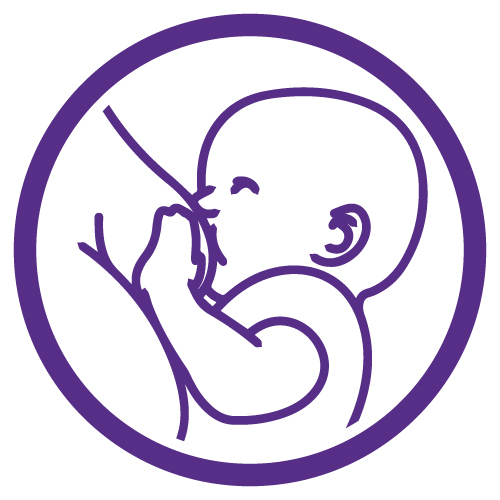 Infant Anatomy & Physiology Online Course(s) & Continuing Education
Infant Anatomy & Physiology Online Course(s) & Continuing Education
Access the latest clinical skills and research for Infant Anatomy & Physiology for Lactation & Breastfeeding professional training. These Infant Anatomy & Physiology online courses provide practice-changing skills and valuable perspectives from leading global experts. This Infant Anatomy & Physiology education has been accredited for a variety of CEUs / CERPs and can be accessed on-demand, at your own pace.


Dr. Jessie Young is a Pediatric Chiropractor near Olympia Washington who works closely with other healthcare professionals to provide comprehensive and collaborative care. She has specialized education in treating breastfeeding difficulties and is near completion of her IBCLC certification. As part of a family's health care team, Dr. Young helps resolve musculoskeletal issues causing breastfeeding difficulties including neck tension, TMJ dysfunction, torticollis, and painful latch. She also provides pre and post-frenotomy care for musculoskeletal issues contributing to tethered oral tissue. Providers, parents and patients rely on Dr. Young for her comprehensive diagnostic and treatment approaches, including modified chiropractic adjustments, myofascial release, therapeutic exercise, and craniosacral techniques. Dr. Young currently volunteers to promote literature contributions and advancement as the Research Chair for the American Chiropractic Association Council on Chiropractic Pediatrics.
Identifying musculoskeletal issues that can impact breastfeeding is an important component of proper management. When surveyed, IBCLCs reported that half were not comfortable identifying musculoskeletal issues .Referrals for musculoskeletal problems were thus hypothesized to be delayed as a result of this discomfort. It was recommended that lactation professionals could benefit from more specialized training in identifying musculoskeletal issues, as early intervention for breastfeeding difficulties is a critical determinant in success.
Attendees will be able to take away the skills and tools to better identify musculoskeletal problems, the indications for co-management/referral and the safety and effectiveness of manual therapy for suboptimal breastfeeding . Issues such as TMJ dysfunction, postural asymmetry, cranial asymmetry, myofascial and joint restrictions commonly cause suboptimal breastfeeding. Current literature supports the fact that favorable outcomes are probable when these issues are treated with manual therapy. Thus the timely identification, referral, and resolution of musculoskeletal issues is one factor that can contribute to the resolution of breastfeeding difficulties.

View Details / Enroll


Jacqueline Kincer is the founder of Holistic Lactation where she runs a busy practice, manufacturers herbal supplements for lactation, and supports breastfeeding families worldwide. She's also the host of the podcast Breastfeeding Talk: Milk. Mindset. Motherhood. and creator of the online breastfeeding community, The Nurture Collective. Jacqueline's passion has been to create functional breastfeeding outcomes and expand access to lactation knowledge across the globe.
Topic: Inside the Infant Mouth: Oral Assessment & Function - [View Abstract]
Topic: Tongue Tied Untied: Creating Functional Breastfeeding Outcomes - [View Abstract]
In order to identify sucking dysfunction, it's important to first know what normal looks like. Being able to do a thorough oral assessment of an infant is a crucial skill for IBCLCs. The focus of this presentation is to discuss what to look for when performing an oral exam, as well as how to assess oral motor function as it relates to infant sucking skills. Knowing how the anatomy affects an infant's oral-motor skills is crucial to determining the cause of breast/chestfeeding problems and suggesting proper treatment.


Dr. Gerner has been a Maternity and Pediatric Specialist in private practice for over 17 years with an additional focus on functional infant cranial work. She teaches other professionals to support breastfeeding across the USA and internationally. She is a wife, mother of 3 grown children, and lives in Northern CA with her husband and their 2 rescued dogs.
Topic: Introductions and Establishing the Value of Integration - [View Abstract]
Topic: Nitty Gritty Anatomy: The Cranium, Supporting Structure and the Muscle Layer - [View Abstract]
Topic: Tying It All Together- Consequences of Pathology and Ideal Collaboration - [View Abstract]
Breast is best! We all know that; however, often parent and child struggle so much at the beginning that breastfeeding either isn’t possible or the parent becomes discouraged and gives up. When feeding challenges occur, sometimes the problem is not with the mother’s technique, but rather with the baby himself- barriers within the alignment and tone of his body causing abnormal function and preventing normal breastfeeding. There can also be tethered oral tissues present (tongue or lip ties) causing even more dysfunction. This presentation focuses on: (1) why breastfeeding is best- nutritionally and neurologically; (2) The cause of imbalance- The birth process; (3) the importance of the integrative collaboration of therapists- i.e. the LC, DDS, chiropractor and/or cranial therapist.


Barbara Wilson-Clay became a La Leche League Leader in 1982. She certified as an IBCLC and entered private practice in Austin, Texas in 1987. Barbara was named a Fellow of the International Lactation Consultant Association in 2008. She recently retired from her practice, which specialized in difficult breastfeeding situations. With a client load of 400-450 visits yearly, Barbara garnered a wealth of clinical and counseling experience and a trove of clinical teaching photos. In partnership with Kay Hoover, she created The Breastfeeding Atlas, which was translated into Chinese in 2019 by Fudan University Press. A Korean translation will be published in September 2020.
Barbara has been a citizen advocate for breastfeeding in the Texas legislature and helped pass a landmark law protecting breastfeeding rights. She is one of the co-founders of the non-profit Mothers Milk Bank at Austin, and retired as Vice President of the Board of Directors in 2010. She continues to serve on the Advisory Board. Barbara's research and commentaries have appeared in the Journal of Human Lactation, Archives of Disease in Childhood, the International Breastfeeding Journal, and others. She has served on various editorial review boards and contributed chapters to several lactation textbooks.
Topic: Looking Both Ways: Taking Wisdom from the Past Into the Future - [View Abstract]
Topic: Looking Closely at The Baby - [View Abstract]
Topic: Maternal & Infant Assessment for Breastfeeding: Essential Concepts for Midwives - [View Abstract]
Clinical management of the breastfeeding mother and infant begins with accurate assessment of the issues that are affecting normal function. While breastfeeding is a dyadic activity, this presentation focuses on the infant. Specifically, the learner is invited to look closely at the individual baby, to observe facial tone and structure, and to identify any anomalies or restrictions in range-of-motion (such as those resulting from torticollis) that may negatively impact ability to breastfeed. Videos and photos will demonstrate both normal and abnormal presentations. Interventions will be proposed to assist infants who are unable to breastfeed so that they may continue to receive human milk, ideally from their own mothers, with an eventual goal of breastfeeding, if possible.

Neuroanatomy and Biomechanics: Breastfeeding as a First Movement Milestone

Allyson is a physical therapist, International Board Certified Lactation Consultant and co-owner of Nurture Columbus, in Columbus, Ohio. She completed a Bachelor’s degree in Biology from Ohio University in 1997, and Master of Physical Therapy degree from Northwestern University in 1999. After having a child in 2007, she volunteered as a La Leche League leader. She discovered a love for supporting new parents but a gap in lactation care, which led her to become an IBCLC in 2014. Her clinical approach to identifying and overcoming feeding challenges is unique with physical therapy foundations in posture, movement and reflexive function. Through presentations she endeavors to engage IBCLCs to know more about movement as related to human lactation, and PTs to learn about breastfeeding/chestfeeding as related to human development. As past-president (2019-2021) of the Ohio Lactation Consultant Association, she also advocates for equitable access to and health plan coverage for lactation care.
Topic: Neuroanatomy and Biomechanics: Breastfeeding as a First Movement Milestone - [View Abstract]
Knowledge of neuroanatomy, reflexes, and biomechanics as related to breastfeeding/chestfeeding is essential to IBCLC competency. This presentation will define breastfeeding/chestfeeding in terms of posture, movement, and reflexive function. Examples of neuromuscular dysfunction that impair breastfeeding will be provided. Strategies for treating neuromuscular dysfunction that impedes movement essential to breastfeeding/chestfeeding success will be reviewed along with new research on how participation in infant movement group classes facilitated maternal confidence in breastfeeding/chestfeeding. Presented by an IBCLC who is also a physical therapist, this presentation explores how breastfeeding/chestfeeding should be considered a first movement milestone fostered through interactive tummy time at the most basic and often effective level, and in need of more definition as such across the healthcare continuum. While alerting other healthcare professionals to this definition can help improve support for it, IBCLCs should be the clinical expert in its assessment and treatment as a foundation to collaboratively solving more complex movement impairments that challenge breastfeeding success.

View Details / Enroll

Neuromusculoskeletal Disorders in the Breastfed Baby: Causes, Assessment, & Treatment

Dr. Valérie Lavigne graduated from the Canadian Memorial Chiropractic College in 1998. In July 2005, she became an IBCLC, the first chiropractor in Quebec with the title. She has her fellowship in pediatrics from the International Chiropractic Pediatric Association and has graduated in November 2014 with a Master of Science in Pediatric Musculoskeletal Health from the Anglo-European Chiropractic College. She is working in private practice in her chiropractic clinic in Kirkland, Quebec.
How comfortable are you at identifying neuromusculoskeletal issues in babies. This lecture will explore the triad aspect of breastfeeding – neurological, muscular and skeletal. A review of the causes, main conditions combined with tips to help you recognize neuromusculoskeletal issues will provide you with a more astute eye during your evaluation. Treatment options will be reviewed in addition to a review of the chiropractic and lactation literature. This lecture should create awareness amongst health professionals about the importance of treating neuromusculoskeletal issues in baby to optimize breastfeeding!

View Details / Enroll

Nitty Gritty Anatomy: The Cranium, Supporting Structure and the Muscle Layer

Dr. Gerner has been a Maternity and Pediatric Specialist in private practice for over 17 years with an additional focus on functional infant cranial work. She teaches other professionals to support breastfeeding across the USA and internationally. She is a wife, mother of 3 grown children, and lives in Northern CA with her husband and their 2 rescued dogs.
Topic: Introductions and Establishing the Value of Integration - [View Abstract]
Topic: Nitty Gritty Anatomy: The Cranium, Supporting Structure and the Muscle Layer - [View Abstract]
Topic: Tying It All Together- Consequences of Pathology and Ideal Collaboration - [View Abstract]
Understanding the specific infant anatomy related to feeding function can unlock the mystery of why the baby is struggling and how to correct the problem. You will see very comprehensive video demonstration of normal function and easy to understand diagrams of common subluxation patterns. This presentation focuses on: (1) The infant cranial and spinal anatomy piece by piece and how it all interacts together; (2) The main muscles of breastfeeding function; (3) clinical presentations of common feeding challenges explained through the anatomy; and (4) correlations into other common infant pathologies of torticollis and Otitis Media.


Bryna is a lactation consultant, mentor, educator, and birth doula in the Pacific Northwestern United States. They are active in their community as an advocate for mutual aid, reproductive justice, and reduction in barriers to care. They also own and manage an inclusive private practice. As a member of both Queer and Neurodivergent communities, offering inclusive care on every level is very important to Bryna. Their vision is to offer information and tools to providers to build a community of comprehensive, concordant, and individualized care for all families in the perinatal period.
Topic: Breastfeeding With Ease: The Impact of Infant Reflex Emergence and Integration - [View Abstract]
Topic: Rhythmic Movement for Breastfeeding Function - [View Abstract]
Disorganized or absent infant reflexes can create challenges for breastfeeding/chestfeeding. This presentation takes a close look at the role of movement in the integration of disorganized infant reflexes and the use of rhythmic movement as a method for overcoming infant feeding challenges. This talk also covers socio-cultural impacts of trauma, lack of opportunity for movement, and modern care system barriers to reflex integration.

View Details / Enroll

Sensory Integration and Breastfeeding

Nancy has been providing breastfeeding help and support for 40 years and has been a national speaker for 30. She has been a perinatal educator and consultant since the late 1970’s. Her second career is that of a Marriage and Family Therapist. Her passion is to explore the larger picture of the mother-baby dyad in the context of the breastfeeding relationship.
Topic: Teens and Breastfeeding - [View Abstract]
This session will look at sensory integration problems, now known as Sensory Processing Disorder. How might these difficulties impact the breastfeeding dyad and the family? We will describe this and present ideas on how to minimize the problems and support breastfeeding.

Sucking Disorders in Children with Neurological, Muscular, Genetic or Anatomical Diseases

Lina Mazzoni is a Lactation Consultant, IBCLC with a Bachelors Degree in Speech and Language Therapy. Since 2013 she has been working primarily with children and specialized in the treatment of sucking, swallowing and feeding disorders. In 2019 she became a Lactation Consultant to be able to work equivalent with the children and the mother. As a working mom she worked part time as a Lactation Consultant in a hospital in Hamburg, started her own privat practice in 2019 and since october 2021 she works exclusively in her private practice as a lactation consultant and SLT. She also works as an Instructor in lactation education and further education regarding feeding developement and disorders . Lina has two children and lives with them and her husband in Hamburg, Germany.
Topic: Sucking Disorders in Children with Neurological, Muscular, Genetic or Anatomical Diseases - [View Abstract]
For an infant, breast/chestfeeding and sucking is the normal form of feeding. If an infant is born with an underlying neurological, muscular, genetic or anatomical disease or if neurological changes occur due to complications, this form of feeding may be disturbed. Since the interaction of breathing-sucking-swallowing requires the coordination of over 60 muscles and several cranial nerves, even small changes in physiology can throw the system out of balance. Congenital-Heart-Disease, Down Syndrome or a disorder of the central nervous system due to pre- or postnatal trauma, infection or structural defect differ in their symptoms, but what they all have in common is that sucking and oral intake of food can be impaired. When working with infants or lactating parents, children with sucking disorders due to an underlying disease may also be present. It is important to know which underlying diseases can have an impact on sucking and how the children and families can be supported to enable or improve oral feeding and to be able to assess which interdisciplinary team would be useful to ensure the best possible care.
















